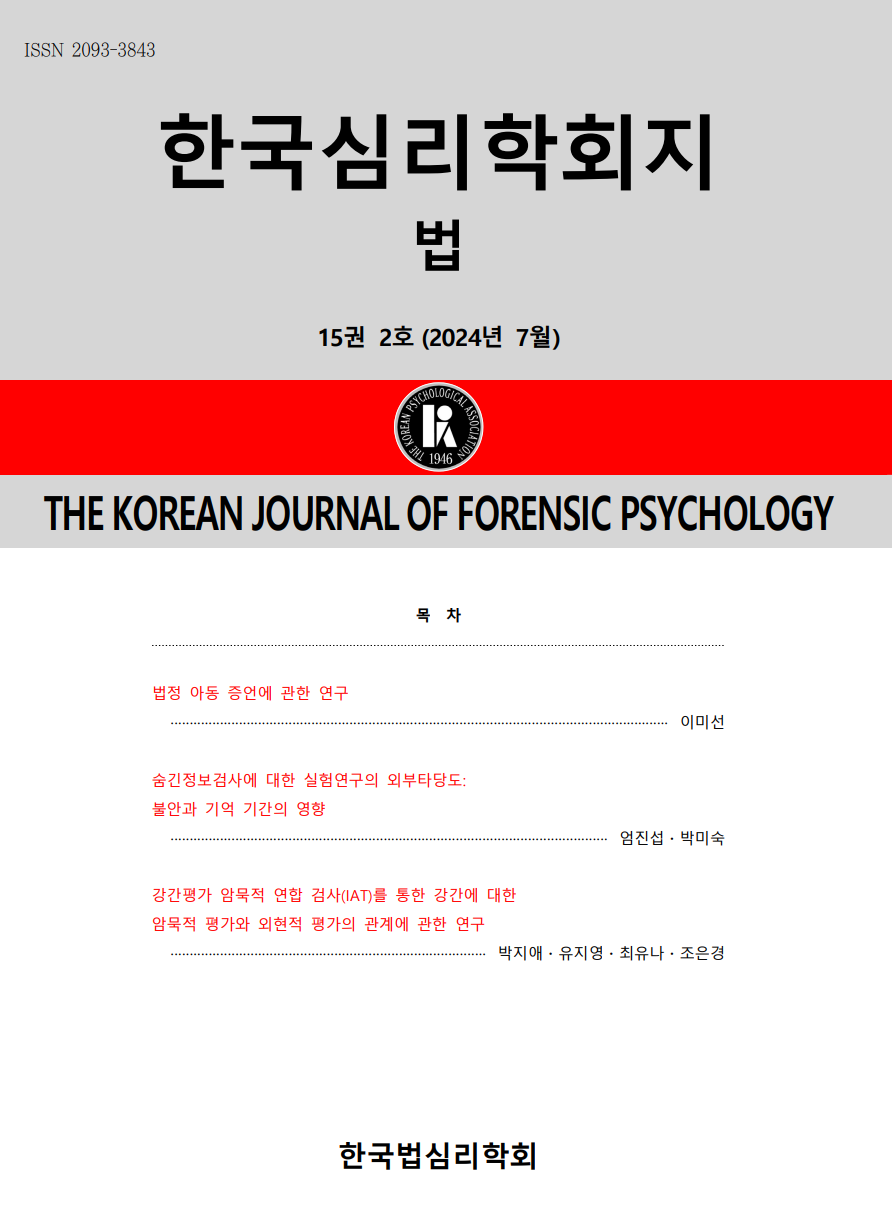open access
메뉴
open access
메뉴 ISSN : 2093-3843
ISSN : 2093-3843
A concealed information test is a type of lie detection test. In experimental studies, the accuracy of the autonomic nervous system-based concealed information test (ANS CIT) and the P300-based concealed information test (P300 CIT) is estimated to be high. However, there are many researchers who question the external validity of experimental research, and attempts also have been made to evaluate it. In the study, two factors those have the potential to affect the external validity of experimental research for CIT were evaluated. One was the level of anxiety that participants experienced when performing a crime in the mock crime paradigm, and the other was the memory duration of the test stimuli used in the personal item paradigm. The results showed that the level of anxiety did not affect the results in the ANS CIT and P300 CIT. In the personal item paradigm, a significant difference was found between the stimuli memorized for long period of time (birthday) and the stimuli for short period of time (student number) in the ANS CIT and P300 CIT. In the long-duration condition, the respiration line length for the relevant stimulus was shorter than that for the irrelevant stimulus, but in the short-duration condition, there was no difference in respiration line length between the two stimuli. Also, the P300 amplitude difference between relevant and irrelevant stimuli was larger in the long-duration condition than in the short-duration condition. The influence of these experimental results on the external validity of the ANS CIT and P300 CIT was discussed.